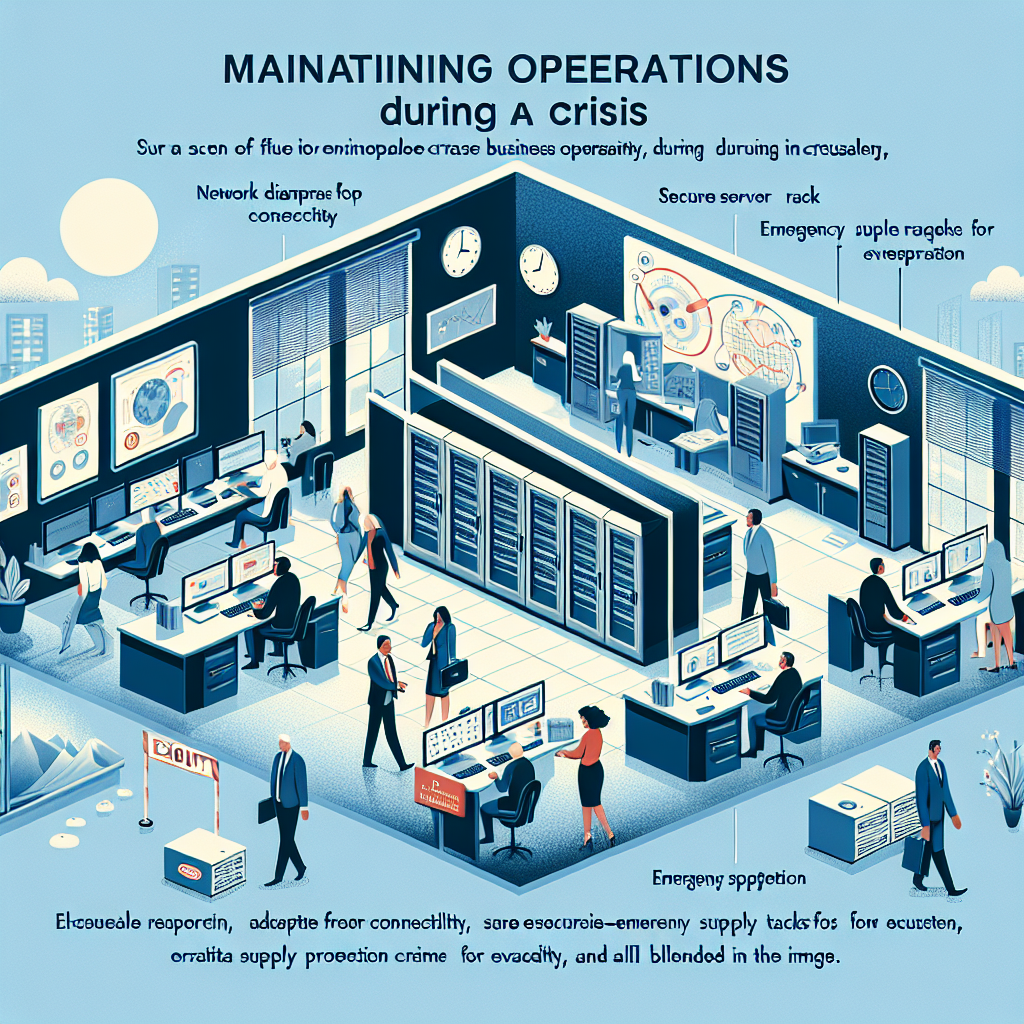Your cart is currently empty!
Business Continuity Best Practices: Tips for Maintaining Operations in a Crisis

In today’s unpredictable world, businesses face a myriad of threats that can disrupt their operations at any moment. From natural disasters to cyber-attacks to pandemics, it’s essential for organizations to have a solid business continuity plan in place to ensure they can maintain operations in the face of a crisis.
Here are some best practices for maintaining business continuity in a crisis:
1. Develop a comprehensive business continuity plan: The first step in ensuring your business can weather any storm is to create a detailed business continuity plan. This plan should outline the steps your organization will take to ensure critical operations can continue in the event of a crisis. It should include protocols for communication, backup systems, and alternative work arrangements.
2. Conduct a risk assessment: Understanding the potential threats your business faces is crucial to developing an effective business continuity plan. Conduct a thorough risk assessment to identify the most likely scenarios that could disrupt your operations, and develop strategies to mitigate those risks.
3. Establish a crisis management team: In the event of a crisis, it’s essential to have a dedicated team in place to manage the situation. This team should be responsible for coordinating the response, communicating with stakeholders, and implementing the business continuity plan.
4. Regularly test and update your plan: A business continuity plan is only effective if it’s regularly tested and updated. Conduct regular drills and exercises to ensure your team is prepared to respond to a crisis, and make updates to the plan as needed based on lessons learned.
5. Maintain open lines of communication: Communication is key in a crisis situation. Ensure that you have multiple channels for communicating with employees, customers, suppliers, and other stakeholders, and keep them informed of any developments as they occur.
6. Implement remote work capabilities: In today’s digital age, many businesses can continue operations remotely in the event of a crisis. Implementing remote work capabilities for your employees can help ensure that critical functions can continue even if your physical office is inaccessible.
7. Establish relationships with key partners and suppliers: In a crisis, it’s essential to have strong relationships with key partners and suppliers. Establishing these relationships ahead of time can help ensure that you have the support you need to maintain operations when disaster strikes.
By following these best practices, businesses can increase their resilience and ensure they can maintain operations in the face of any crisis. A solid business continuity plan, regular testing and updates, effective communication, and strong relationships with partners and suppliers are all key components of a successful business continuity strategy.

Leave a Reply